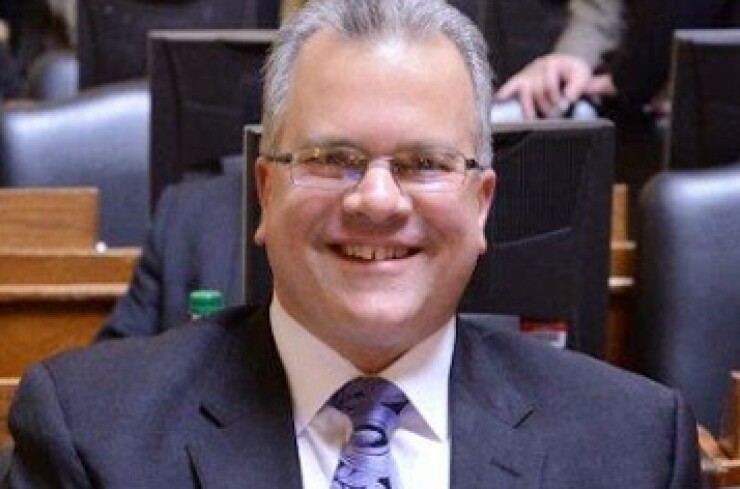Rhode Island’s House of Representatives this week will debate a $9.2 billion fiscal 2018 state budget that would eliminate a $134 million shortfall and initially fund six-year phaseout of the automobile tax.
The full House is scheduled to vote on the spending plan Thursday, after which the bill will go to the Senate. The House finance committee approved it Friday, shortly after midnight.
It would raise the minimum wage, restore free bus fares for the elderly and disabled persons, create a pilot program to provide two years of free tuition at the Community College of Rhode Island and include no broad-based tax increases.

“It finally makes good on the promise to eliminate the excise tax on automobiles, which has been a priority for me because I’ve heard from so many Rhode Islanders who believe it’s an unfair tax,” said House Speaker Nicholas Mattiello, D-Cranston, who championed the measure.
The budget starts the engine on Mattiello’s car-tax elimination plan, which he introduced as a separate bill in May, to begin eliminating the levy reducing the taxable portion of a car’s retail value from 100% to 95% and increasing the minimum exemption from $500 to $1,000, and capping the rate at $60 in 2018.
It also stops taxing cars 15 years or older immediately. The plan would continue reducing the taxable value and maximum rates and raising the minimum exemptions through 2023, with the tax completely eliminated in 2024. The budget fully reimburses cities and towns for the lost revenue, a cost of $26 million in 2018.
The plan includes a 90-cent increase in the minimum wage over two years, raising the wage to $10.10 next Jan. 1, and to $10.50 on Jan. 1, 2019.
The bill restores a program that provided no-fare Rhode Island Public Transit Authority bus passes to elderly and disabled people. While Gov. Gina M. Raimondo’s proposal partly restored the program, the new proposal will fund the program for two years at the cost of $3.4 million per year.
The finance panel continued commitments made in previous years to economic development initiatives through the Rhode Island Commerce Corp. such as extending the sunset on the tax-credit program for two years, and expanded access to the innovation incentive for manufacturers.
It scaled down other incentive programs in the governor’s proposal.
The committee concurred with Raimondo’s initiative to enhance efforts for online retailers to collect sales tax. Amazon.com began doing so voluntarily this year.
It also included a compromise on Raimondo’s proposal to provide two years of free tuition to students at state colleges. A four-year pilot program will provide two years at the Community College of Rhode Island, with requirements that students maintain a 2.5 grade-point average and stay in Rhode Island for at least two years after graduation.
State lawmakers will receive updates on program’s effectiveness.
To help close a $134 million shortfall caused by lower-than-expected revenues and higher-than anticipated spending, lawmakers declined to create new positions throughout government and made a $25 million cut in general government spending, as well as decreasing the General Assembly’s budget by $2 million and cutting smaller programs moderately.
Moody's Investors Service rates Rhode Island's general obligation bonds Aa2. Fitch Ratings and S&P Global Ratings each assign AA ratings. All three have stable outlooks.





